
On this day, July 13, 1994, Tonya Harding's ex-husband, Jeff Gillooly, was sentenced in Portland to two years in prison for his role in the attack on Nancy Kerrigan. He ended up serving six months.
 Post an Event
Post an Event
| TILLAMOOK COUNTY FAIR - 100 YEARS OF PIG N'FORD |
| Wednesday, August 6, 2025 at 10:00 am |
| The Tillamook County Fair received its recognition as one of the top ten Blue Ribbon Fairs in the nation due to its uniqueness; offering so much for fairgoers to enjoy free along with their paid admission. Fairgoers can enjoy all of the Open Class and 4-H/FFA exhibits that Tillamook County residents have prepared the year prior, free entertainment and concerts, live exotic animal displays, and a whole lot more!
FOR MORE INFORMATION
tillamookfairoffice@gmail.com
(M-F, 8 AM-5 PM) at (503) 842-2272.
Reminders:
NO OUTSIDE FOOD OR DRINK
All bags are subject to search
For the safety of all present, only trained service animals are permitted to enter Fairgrounds property. A trained service animal is any guide dog, signal dog, or other animal individually trained to do work or perform tasks for people with disabilities. |
| 4603 East 3rd Street
Tillamook, OR, 97141 |
Unknown male discovered in 2016 remains unidentified
Oregon State Police and Marion County Medical Examiner’s Offices are requesting assistance in identifying a deceased male discovered in 2016. Photos of what he might look like have been produced
here.
On July 22, 2016, the body of an unknown male individual was found deceased under the Marion Street Bridge in Salem, Oregon. The individual was wearing a short-sleeved dress shirt and blue denim jeans. He appeared to have brown hair with some gray, and was between 35 and 65 years old at the time of death. The identity of this individual has never been confirmed, and almost 7 years have passed without any substantial leads regarding his identity. His profile has been uploaded into the
National Missing and Unidentified Persons System under NamUs UP#16050.
OSP has partnered with
Parabon NanoLabs to perform innovative DNA analysis on this case. Based on genetic information, his eye color and hair color are brown, and his skin color is light brown. Additional results show this male to have genetic ancestry common in Central and South American Latino individuals. He is likely from Central Mexico and very likely to have close family in or near Las Ranas, Michoacan.
A D V E R T I S E M E N T

A D V E R T I S E M E N T
Do you know of, or have family members in Las Ranas? Can you recall a known Hispanic male individual disappearing in the summer of 2016 who meets this description and has not been heard from in 7 years? If so, please contact the Marion County Medical Examiner’s Office at 1-503-580-9471 to report information that may help identify this man.
Information can also be e-mailed to Randerson@co.marion.or.us
--Donna Bleiler| Post Date: 2023-07-07 17:42:09 | Last Update: 2023-07-07 18:04:08 |
Salem hosts this international event for the third year
Thousands of athletes and their supporters from around the world are heading to Salem, Oregon for Ironman’s premiere endurance competition. Ironman 70.3 Oregon takes place on Sunday, July 23, 2022, beginning at 6:00 a.m. in Riverfront Park.
The 70-mile racecourse features a 1.2-mile swim in the Willamette, a 56-mile bike ride through South Salem to the Ankeny Nature Preserve and back, and a 13.1-mile run through Minto-Brown Island Park finishing in Riverfront Park at the Gerry Frank | Salem Rotary Amphitheater. For decades, Ironman events have attracted athletes to compete against each other and the grueling course itself.
Several road closures are planned from Riverfront Park in downtown Salem towards the Ankeny Natural Wildlife Refuge along River Road South. Information is being sent to residents that live along the racecourse and signs will be posted to warn drivers of the potential traffic impacts that may occur throughout the day.
A D V E R T I S E M E N T

A D V E R T I S E M E N T
Salem and their partners in tourism, including Travel Salem are proud to host Ironman 70.3 Oregon. Details about the course, including maps and information about park and street impacts, can be found at
Ironman 70.3 Oregon. You can be part of this event by
volunteering.
--Donna Bleiler| Post Date: 2023-07-06 18:32:29 | Last Update: 2023-07-06 18:41:10 |
Online applications are due by 5 p.m. Monday, July 17
The Roseburg Oregon City Council
has announced that it is taking applications from candidates interested in filling the vacancy created when Councilor Brian Prawitz resigned on Monday, June 26.
Prawitz, who chaired the Roseburg Economic Development Commission, resigned after accepting the position of Executive Director for the Umpqua Economic Development Partnership. He represented Ward 3 in southwest Roseburg for more than six years after being elected in November 2016.
Candidates to fill his seat must live in Ward 3. Ward boundaries can be found on this
Roseburg ward map.
Online applications are due by 5 p.m. Monday, July 17. Application forms can be printed and turned in at City Hall, 900 SE Douglas Ave., or downloaded and
emailed to the city.
The Council will conduct interviews during a public City Council meeting and appoint a replacement to serve until December 31, 2024, when Prawitz’s term was set to expire. The seat will be up for election in November 2024. The Council may appoint a replacement at the City Council meeting when interviews are held or seek additional candidates to consider at a later date.
A D V E R T I S E M E N T

A D V E R T I S E M E N T
The Roseburg City Council meets at 7 p.m. on the second and fourth Mondays of each month as well as for special meetings. As the elected legislative body for the City of Roseburg, the City Council is responsible for the scope, direction and financing of City services. The Council is also responsible for establishing land use policies and zoning regulations.
The Council establishes local law and policy that is administered and implemented by City staff under the council-city manager form of government. The Council gives policy direction to the City Manager, who’s responsible for administering City operations. In setting policy, the Council works closely with citizen-advisory commissions and committees, considers City staff information and recommendations, and takes input from interested parties and the public. Councilors review material to prepare for Council meetings, and speak and correspond with ward constituents. Councilors also attend other meetings and may chair a City commission.
Roseburg is divided into four wards, with two Council members representing each ward. Council members serve a four-year term with one Council position in each ward up for election every two years. The Mayor, who presides over Council meetings, is elected at large for a two-year term. The Mayor and Councilors are non-salaried, volunteer positions elected by Roseburg residents.
For more information about this vacancy, interested parties may contact City Recorder Patty Hitt
via email or by calling 541-492-6865.
--Ben Fisher| Post Date: 2023-07-04 16:02:47 | Last Update: 2023-07-04 16:24:52 |
Judge finds Oregon recording law unconstitutional
It was nearly three years ago that James O’Keefe walked into the Federal Courthouse in Portland wearing a bulletproof vest surrounded by six security guards arriving in two different black cars. That was the Portland atmosphere amid the BLM, ANTIFA, George Floyd riots that required caution to deliver his complaint against Oregon’s recording law. That law was overturned this week by the Ninth Circuit Court.
The original case was dismissed by Oregon Attorney General, Ellen Rosenblum, and the Multnomah County District Attorney, Michael Schmidt. O’Keefe’s appeal to the Ninth Circuit “alleged that because section ORS 165.540 favored recording some subjects, but disfavored others, the differential treatment rendered section ORS 165.540(1)(c) and its exceptions unconstitutional.†He is referring to a bill,
HB 2704 passed in 2015, that allowed citizens to record interactions with law enforcement officers unknowingly. Even ACLU testified that it was inconsistent with courts and legal scholars on the public right to record on-duty police.
Writing for the majority on the panel, Judge Sandra S. Ikuta wrote, “Oregon law generally prohibits unannounced recordings of conversations, subject to several exceptions. We conclude that Oregon’s law is a content-based restriction that violates the First Amendment right to free speech and is therefore invalid on its face.â€
A D V E R T I S E M E N T

A D V E R T I S E M E N T
O’Keefe announced to his subscribers, “I was able to change a state law that disallowed my investigative journalists to covertly record their subjects while doing our reporting.
This is a first for journalism and for myself as the founder of three different investigative media companies.†He continued, “After over a million dollars in legal fees, many late nights with counsel and advisers, and yes.....even security escorts and of course the safety of black car transportation, history has been made in this country! No other news media outlet has ever toppled an unconstitutional State Law and this is just the beginning for us.â€
--Donna Bleiler| Post Date: 2023-07-03 21:36:07 | Last Update: 2023-07-04 13:27:56 |
Communities are living in fear, businesses are bearing the brunt of relentless attacks
A new Portland-based legal initiative has launched an effort to secure reparations for damages and losses incurred by business owners and hold elected officials, cities, states and local governments accountable for out-of-control crime, theft and property destruction incurred over the last three years.
Restore Law and Order is a new legal organization and business advocacy group founded by Oregon business owner Gregg Schumacher, president and owner of Schumacher Furs. “We have partnered with some of the most powerful constitutional attorneys and legal experts in the nation to secure rightful financial reparations for affected business owners and to hold accountable those who have allowed crime to run rampant and promoted policies that have led to decay and the loss of business,†said Gregg Schumacher, Founder of Restore Law and Order.
This group aims to address what they describe as the alarming rise in crime, lawlessness, and property destruction that have become distressingly normalized in cities
across the United States. The organization’s mission is to restore law and order by holding government officials personally accountable for their inaction and violation of constitutional law. Restore Law & Order, Inc. seeks to put an end to the ongoing deterioration of safety and security that plagues our communities. The organization is actively seeking business owners with demonstrable economic losses and damages due to crime and lawlessness to join as plaintiffs in its numerous lawsuits against cities, states, local governments, and elected officials throughout the country.
“We are standing up for business owners who law and order was supposed to protect,†he said. The events of 2020 unfolded with unprecedented levels of crime, lawlessness,
and property destruction that sent shockwaves throughout our nation. The primary damages that businesses incurred are devaluation of property, gross revenue-net profit losses and lack of tourism.
A D V E R T I S E M E N T

A D V E R T I S E M E N T
“Sadly," Schumacher continued, "instead of addressing these issues head-on, they have persisted and continue to wreak havoc in cities across the US today. Communities are living in fear, businesses are bearing the brunt of relentless attacks, and law-abiding citizens are being denied the safety and security they deserve. As president and owner of Schumacher Furs, Inc., a family business established in 1895, the oldest fur company in America, Schumacher experienced firsthand the devastating consequences of this lawlessness. From 2005 to 2007, his family, employees, and loyal customers were subjected to a reign of terror by extremist groups in Portland, Oregon resulting in the loss of his 130-year-old family business.

“It was shocking and heartbreaking watching terrorists systematically destroy the company my family built,†Schumacher said. “Law enforcement failed to intervene effectively, leaving us without the basic protection we deserved,†he said. “The effects were devastating to our family and the families of hundreds of people we employed, many of which were expert craftsman who had proudly worked for the company for decades,†he said.
The relentless attacks eventually forced Schumacher Furs to cease operations in downtown Portland, leaving behind a legacy of lost jobs and economic hardship. For this reason, Schumacher has made it his life’s mission to advocate on behalf of business owners, hopeless, helpless and facing the same fate. “My goal is to prevent what happened to Schumacher Furs from happening to other businesses," Schumacher said.
The detrimental effects of crime on businesses cannot be overstated. Apart from the obvious physical damage inflicted on properties, businesses face severe financial losses and operational disruptions. Vandalism, break-ins, and theft result in significant repair and replacement costs, diverting resources away from growth and innovation.
Furthermore, businesses in crime-ridden areas often experience reduced customer traffic due to safety concerns, leading to a decline in revenue and potential closures. The negative impact on employment and local economies cannot be ignored, as lost jobs mean diminished livelihoods for countless individuals and families.
Recognizing that the normalization of crime, lawlessness, and property destruction is a widespread issue affecting cities across the nation, Gregg Schumacher has rallied a passionate team to fight back. Restore Law and Order, Inc. is dedicated to holding government officials accountable for their inaction, negligence, and violating
constitutional laws, which have allowed these issues to persist and escalate.
A D V E R T I S E M E N T

A D V E R T I S E M E N T
“The time for decisive action is now,†said Gregg Schumacher, Founder of Restore Law and Order, Inc. “We are committed to seeking justice and reparations on behalf of businesses, organizations, and individuals who have suffered due to the breakdown of law and order,†he said. The organization has retained a powerful legal team that has developed a comprehensive strategy to confront and challenge government officials' failures head-on.
“The effects of crime on businesses go beyond financial losses,†Schumacher said. “They permeate the fabric of our communities, instilling fear, eroding trust, and hindering growth. By taking legal action, we aim to combat the normalization of these destructive behaviors and restore safety, security, and peace to cities nationwide,†he said.
--Staff Reports| Post Date: 2023-07-02 16:23:41 | Last Update: 2023-07-02 19:25:16 |
“This bill will result in all gas stations in Oregon becoming self-serveâ€
Awaiting Governor Kotek's Signature is
HJB 2426 sponsored by Shelly Boshart Davis (R-Tangent) and Julie Fahey (D-Junction City) which will allow self-serve gas in Oregon. The bill requires that notification signs be posted stating which gas pumps are designated for self-service and which are designated for attended service and requires at least one person to be able to provide attended service and for price charged to be identical.
Oregon is one of two states, including New Jersey, that restricts self-service dispensing of gasoline at retail fueling
stations. The prohibition dates back to 1951. Legislative findings regarding the prohibition cite: the need for
training for safe dispensing of Class 1 flammable liquids; hazards faced by untrained persons dispensing such
liquids; difficulties for some persons, such as senior citizens, in self-service fuel dispensing and the lack of ability to
ensure full-service fuel dispensing; health and environmental factors; the tendency for significantly higher cost of
full-service fuel dispensing in states that allow self-service dispensing; the correlation between self-service
dispensing and reduced availability of automotive repair at fueling stations; and employment considerations.
In 2015, the Legislature passed
HB 3011 which authorized fueling stations in counties with populations less than 40,000 residents to permit non-employees to dispense fuels into motor vehicles or other containers between the hours of 6:00 pm and 6:00 am. Two years later, during the 2017 regular session, the Legislature passed
HB 2482 which eliminated the time-of-day restrictions and limited the applicability only to small counties in eastern Oregon.
Now, House Bill 2426 allows retail fueling stations to operate up to half of their pumps as self-service dispensing devices.
A D V E R T I S E M E N T

A D V E R T I S E M E N T
The testimony during the Legislative Committee hearings was mixed. Mike Freese of the Oregon Fuels Association said that the bill "has overwhelming public support. It is no secret that Oregon has unique gas fueling laws. Nevertheless, as explained by gas station owners, finding employees to pump gas is extremely hard – and even impossible in some cases – which in turn makes it impossible to keep gas stations open and operating. HB 2426 helps relieve pressure in this tight labor market, while preserving the choice to fuel your own vehicle or opt for an attendant to fuel the vehicle."
There were contrary voices. Brandon Venable of Pendleton said, "I’m a manager at a fuel station in Oregon and I oppose self serve. I deal with many dangerous situations on the daily created by people smoking, leaving their engines running, getting in and out of their vehicles creating static electricity, trying to fill up random bottles and jugs and driving off with the pump still in the vehicle. For someone who spends 10 minutes at a gas station this may not seem like something that is dangerous but when you deal with this for 8 plus hours a day it’s reality. Us as attendants do a lot for our customers and keeping everyone safe is a main goal. Selecting half of our pumps won’t speed the process of fueling up it will just add frustration and confusion to long lines of people that aren't concerned with the cars behind them."
Kathy Lincoln of Keizer submitted, "HB 2426 is a bad idea. There is no reason to change the current status of help at service stations. Service stations provide jobs to many people who may not find jobs elsewhere. Contrary to the complaint of the Oregon Fuels Association, we have never had an issue with lack of help at service stations. In my experience, workers are courteous, helpful and obviously, earning a living. Who are the beneficiaries of this bill? Certainly not the general driving public, nor the currently employed gas station attendants."
She continued, "This bill will result in all gas stations in Oregon becoming self-serve, which is a DIS-service to the disabled, seniors, and those who do not want to arrive at their destination smelling like gasoline.
--Staff Reports| Post Date: 2023-07-02 15:52:03 | Last Update: 2023-07-02 16:23:41 |
Oregon Election Integrity Suit Headed to Ninth Circuit Court of Appeals
The
Thielman v Fagan lawsuit ‘Motion to Dismiss’ was heard on June 26th at the Mark O. Hatfield United States Courthouse in Portland, Oregon. The presiding Magistrate Judge was Stacie Beckerman. Attorney Bryan Marshall represented the Office of the Secretary of State and the Oregon Counties and Attorney Stephen Joncus represented the Plaintiffs.
The
Thielman v Fagan lawsuit asks for a declaration that Oregon’s mail-in voting and computer tabulation of votes are unconstitutional and asks for an injunction against use of those systems in elections. The lawsuit does not seek money damages, only relief from laws and policies that inflate voter rolls, use hackable tabulators, mandate mail-in ballots and stymie efforts of “We the People†to discover the many nefarious ways an election can be compromised.
The lawsuit states that; “…the very agents of the state and county governments that swear an oath to uphold the United States Constitution have encumbered, disrupted, obstructed, and out-right denied access of the people to public records, refused to investigate findings from election canvassers, and impugned the reputation of election integrity minded citizens.“
The suit details about 50 pages worth of election anomalies both in and out of Oregon. The suit does assert a fraud claim, and some anomalies reach to that level.
Defendant Shemia Fagan was appointed as Secretary of State after Stephen Trout was fired/resigned during the 2020 election when he insisted the election was not secure. On May 8th, 2023 Fagan was forced to resign due to the scandal over her acceptance of $10,000 a month as a cannabis consultant. For the June 26th hearing, it was mandatory that the participants agreed that Fagan’s successor, Cheryl Myers, was accepted as replacement as the SOS Defendant in the lawsuit. Fagan’s ethical breaches regarding her position as SOS were not discussed at the hearing.
A D V E R T I S E M E N T

A D V E R T I S E M E N T
The Motion to Dismiss asserts that Plaintiffs do not have standing because they are asserting a generalized grievance applicable to all citizens. Defendants’ Attorney, Bryan Marshall, argued that the Plaintiffs do not have standing in subject matter and Plaintiffs cannot establish ‘an injury in fact’ that is ‘concrete, particularized, and actual or imminent, that the injury was likely caused by the defendants and that the injury would likely be redressed by judicial relief’.
Plaintiffs’ Attorney, Stephen Joncus, explained that Defendants’ argument does not address the situation where the government has taken complete control of the election system, uses it to re-elect themselves, and prevents the public from discovering the fraud. Defendants’ rule cannot be right because it means that there is no way for a free people to escape a tyrannical government. Joncus relied on authority stating that “elections enable self-governance only when they include processes that give citizens confidence in the fairness of elections.†In other words, when the public does not have confidence in elections, they are no longer governing themselves.
The subjectiveness of a feeling of lack of confidence is not a bar to a constitutional remedy because in
Brown v Board of Education, the Supreme Court found that separate but equal schools for black children was unconstitutional because of a feeling of inferiority. The injury can be emotional rather than concrete and does not have to be particularized. Joncus explained that the voters have lost the civil right of fair and free elections due to the election anomalies presented by Plaintiffs. The voters have lost confidence in the election system.
Joncus stated that Oregon touts risk-limiting audits as one of the pillars of Oregon’s purported transparent and robust security measures. In fact, no county is capable of doing risk limiting audits and no county has ever done a risk limiting audit.
Joncus argued that in cases where the very rules regarding elections are broken, it is that broken system that incumbent officials have to thank for their incumbency. Such officials will not be motivated to reform the system that put them in power; instead, they will tend to defend the system that keeps them in power.
A D V E R T I S E M E N T

A D V E R T I S E M E N T
Magistrate Judge Stacie Beckerman summarily rejected Plaintiffs’ arguments. She sided with the Defendants when her opinion relied on the post 2020 election caselaw that refuses to acknowledge that election fraud exists. For her opinion, Beckerman cited the case
Lake v. Hobbs, that finds Plaintiffs lacked standing as their alleged injury of potential voter fraud was too speculative because “a long chain of hypothetical contingencies must take place for any harm to occur†and concluding “that speculative allegations that voting machines may be hackable are insufficient to establish an injury in fact under Article IIIâ€.
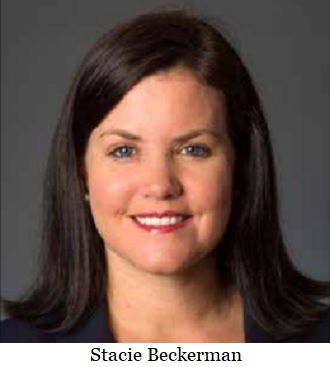
Judge Beckerman also cited the case
Donald J. Trump for President, Inc. v. Boockvar. This case dismissed claims related to the state’s mail-in voting system as “too speculative to be concrete†where the plaintiffs claimed a “fear that absent implementation of the security measures that they seek; guards by drop boxes, signature comparison of mail-in ballots, and poll watchers, there was a risk of voter fraud by other votersâ€.
Judge Beckerman stated in her opinion that Plaintiffs seek entry of a judgment declaring that Oregon’s voting systems are unconstitutional, Plaintiffs allege that Oregon’s computerized vote tabulation and mail-in voting systems violate their constitutional rights including violations of the Due Process Clause, the Equal Protection Clause, and their fundamental right to vote.
The Judge continued with, “Plaintiffs allege that organized criminals are manipulating Oregon’s elections, and they base their claims on a documentary about voting irregularities in other states and reports of voting irregularities in Oregon.â€
Judge Beckerman’s opinion concludes; “The Court agrees that Plaintiffs have failed to plea a cognizable injury-in-fact and therefore grants Defendants’ Rule 12(b)(1) motion to dismiss.â€â€œPlaintiffs lack standing here because the injury they allege is neither particularized nor concrete.â€
Joncus immediately filed an appeal to the Ninth Circuit Court of Appeals on the same day of Judge Beckerman’s order. Joncus will request expedited review by the Ninth Circuit, and plans to appeal to the U.S. Supreme Court if the Ninth Circuit fails to reverse Judge Beckerman’s order.
Editor's note: The author of this article is a Plaintiff in the Thielman v Fagan lawsuit.
--Terry Noonkester| Post Date: 2023-07-02 15:02:56 | Last Update: 2023-07-02 15:52:03 |
" We owe it to our veterans "
The Oregon Senate unanimously passed two significant bills, House Bill
2271 and House Bill 3001, further reinforcing the state’s commitment to supporting veterans and
their families. These bills will provide crucial assistance to student veterans and recognize Gold
Star Families for their sacrifice.
The bills passed on a bipartisan vote and now heads to the Governor’s desk for
consideration.
HB 2271, the Veterans Educational Bridge Grant bill, addresses the challenges faced by student veterans who encounter obstacles in completing their academic or training programs. The
program offers grants of up to $5,000 to veterans that meet the eligibility requirements. The bill
will expand eligibility for the program, allowing more veterans to qualify and receive support.
This bill also makes this program permanent, ensuring long-term assistance for student
veterans pursuing their education.
A D V E R T I S E M E N T

A D V E R T I S E M E N T
“We owe it to our veterans to ensure that they have the resources they need to successfully
complete their educational programs and embark on fulfilling careers,†said Senator Mark
Meek (D-Clackamas), U.S. Air Force Veteran and chair of the Senate Committee On Finance
and Revenue.
The Also passed is
HB 3001, which allows roadside memorial highway signs to be placed without charge to Gold Star families and requires the Department of Transportation to waive the
surcharge associated with the vehicle registration plate for Gold Star families.
“This bill sends a resounding message of gratitude and recognition to the families who have
suffered unimaginable loss of a loved one in military service,†said Senator Meek. “Waiving the fees and surcharges associated with these symbols of remembrance is just common sense. It acknowledges the contributions and sacrifices made by
these families in the defense of our nation.â€
HB 2271 and HB 3001 were among the hundreds of bills that were rescued by negotiating an end to the Senate Republican walkout.
--Ritch Hanneman| Post Date: 2023-07-01 15:28:10 | Last Update: 2023-07-01 17:41:34 |
The case is similar to the Sweet Cakes by Melissa case in Oregon
In a landmark decision, the US Supreme Court has struck down a so-called Colorado anti-discrimination law. The case is strikingly similar to the Sweet Cakes by Melissa case in Oregon, which features nearly the same law and claims.
At issue was a Colorado law forbidding businesses from engaging in discrimination when they sell goods and services to the public. The petitioner, a website desigener named Lorie Smith, worried that, if she enters the wedding website business, the State will force her to convey messages inconsistent with her belief that marriage should be reserved to unions between one man and one woman. In an opinion authored by Justice Neil Gorsuch, the High Court held that The First Amendment prohibits the state of Colorado from forcing a website designer to create expressive designs speaking messages with which the designer disagrees.
The Oregon Legislature's LGBTQ Caucus put out a statement condemning the decision in
303 Creative v. Elenis saying, "The U.S. Supreme Court struck a major blow to all Americans’ civil rights, particularly those of the LGBTQ community, with their unjust decision in the
303 Creative v. Elenis case."
Members of the caucus are Senate Majority Leader Kate Lieber (D-Beaverton, SW Portland), Representative Ben Bowman (D-Tigard, Metzger, South Beaverton), Representative Farrah Chaichi (D-Aloha), Representative Dacia Grayber (D-SW Portland, Beaverton), Representative Travis Nelson (D-N/NE Portland), and Representative Rob Nosse (D-Portland).
They continued, “This decision is proof that even with historic victories, we still have a long way to go for everyone -- regardless of who they love or how they identify -- to be equal in this nation. We will never live up to our pledge of liberty and justice for all as long as hate and bigotry are protected by the powerful.
We condemn this discriminatory decision in the strongest possible terms. This decision will not make us more free. It oppresses a community built on love and
acceptance.
A D V E R T I S E M E N T

A D V E R T I S E M E N T
Reversing a US 10th Circuit decision, Gorsuch concluded:
In this case, Colorado seeks to force an individual to speak in ways that align with its views but defy her conscience about a matter of major significance. In the past, other States in Barnette, Hurley, and Dale have similarly tested the First Amendment’s boundaries by seeking to compel speech they thought vital at the time. But, as this Court has long held, the opportunity to think for ourselves and to express those thoughts freely is among our most cherished liberties and part of what keeps our Republic strong. Of course, abiding the Constitution’s commitment to the freedom of speech means all of us will encounter ideas we consider “unattractive,†“misguided, or even hurtful.†But tolerance, not coercion, is our Nation’s answer. The First Amendment envisions the United States as a rich and complex place where all persons are free to think and speak as they wish, not as the government demands. Because Colorado seeks to deny that promise, the judgment is reversed.
Recently, there has been a pushback against
non-traditional sexual minorities' displays, especially
those involving children, though the American Library Association
continues to support Drag Queen Story Hour. In a dissent from the
330 Creative decision, Justice Sotomayor recognized the trend, saying, "Around the country, there has been a backlash to the movement for liberty and equality for gender and sexual minorities."
--Staff Reports| Post Date: 2023-07-01 07:03:30 | Last Update: 2023-07-01 13:52:35 |
The Secretary of State answers to the people of Oregon
Oregon's 29th Secretary of State, LaVonne Griffin-Valade, was sworn into office by Chief Justice Meagan Aileen Flynn at Governor Tina Kotek's ceremonial office in the Oregon State Library. Secretary Griffin-Valade was joined by her husband, members of her family, Governor Tina Kotek and Acting Secretary of State Cheryl Myers.
Secretary Griffin-Valade will serve the remaining 18 months of the current term, vacated by former Secretary of State Shemia Fagan after her resignation on May 8.
For over 16 years, LaVonne worked as a government performance auditor. She was hired as a Senior Management Auditor at the Multnomah County Auditor’s Office in 1998 and later went on to serve as the elected Multnomah County Auditor. In 2009, LaVonne was elected the Portland City Auditor. As the City Auditor, she oversaw several divisions requiring a high level of independence and ethical judgment from managers and staff, including government performance auditing, elections, archives, ombuds office, and additional accountability functions. Throughout her many years working as a staff auditor and then as an elected auditor, she was a member of an international committee shaping the course of local government auditing throughout the U.S. and in several Canadian jurisdictions.
A D V E R T I S E M E N T

A D V E R T I S E M E N T
The Oregon Secretary of State is one of three constitutional offices created at statehood. Oregon's Secretary of State is Oregon's chief elections officer, chief auditor, and oversees the State Archives and the Oregon Corporation Division. The Secretary of State also serves as one of three members of the State Land Board and as the chair of the Oregon Sustainability Board. As an independent constitutional officer, the Secretary of State answers directly and solely to the people of Oregon.
--Staff Reports| Post Date: 2023-06-30 12:46:00 | Last Update: 2023-06-30 12:55:32 |
It will take 2/3 of the Senate to convict
In the dust of the end of the 2023 Legislative Session, a resolution to send an amendment to the Oregon Constitution to allow for impeachment of Statewide Elected officials has passed both chambers. Currently, they may only be removed from office through recall, a very difficult process. Oregon is the
only state without any impeachment process.
The Resolution -- sponsored by Representative Jami Cate (R-Lebanon) -- proposes an amendment to the Oregon Constitution to give the House of Representatives the power of impeachment for statewide elected officials of Executive Branch for malfeasance or corrupt conduct in office, willful neglect of statutory or constitutional duty, or other felony or high crime, and the Senate the power to try any impeachment received from House. Requires two-thirds majority vote of House to deliver impeachment resolution to Senate and two-thirds majority vote of Senate for conviction.
It allows Chief Justice to preside in the Senate impeachment trial and limits judgment to removal from office and disqualification from holding any other public office in state. It allows Legislative Assembly to convene to exercise its impeachment powers.
A D V E R T I S E M E N T

A D V E R T I S E M E N T
The text of the amendment, which voters should see on the November 2024 ballot, will be:
SECTION 34. (1) The House of Representatives shall have the power of impeachment of statewide elected officials of the Executive Branch for malfeasance or corrupt conduct in office, willful neglect of statutory or constitutional duty or other felony or high crime. The House of Representatives may deliver a resolution of impeachment to the Senate only upon the concurrence of at least two-thirds of all Representatives.
(2) The Senate shall have the power to try any impeachment received from the House of Representatives. When sitting for the purpose of trying an impeachment, the Chief Justice of the Supreme Court shall preside and Senators shall swear or affirm to do justice according to law and evidence. A person may not be convicted under this section without the concurrence of at least two-thirds of all Senators.
(3) Judgment shall extend only to removal from office and disqualification from holding any other public office in this state. Any person convicted or acquitted under this section remains subject to any criminal prosecution or civil liability according to law.
(4) Section 10a of this Article may be invoked for the purpose of exercising the power of
impeachment under this section.
--Staff Reports| Post Date: 2023-06-29 13:35:49 | Last Update: 2023-06-29 22:38:29 |
“Our constitutional history does not tolerate that choice.â€
In a pair of related decisions, the US Supreme Court has held that the admissions programs at Harvard College and the University of North Carolina -- similar to those used as all public colleges and many private colleges in Oregon -- violate the equal protection clause of the 14th Amendment.
The claims made by Students for Fair Admission in this case were based on Title VI of the Civil Rights Act of 1964, which said, “No person in the United States shall, on the ground of race, color, or national origin, be excluded from participation in, be denied the benefits of, or be subjected to discrimination under any program or activity receiving Federal financial assistance.†This was cited by Justice Neil Gorsuch in his concurring opinion where he also notes that "the trial records reveal that both schools routinely discriminate on the basis of race when choosing new students -- exactly what the law forbids."
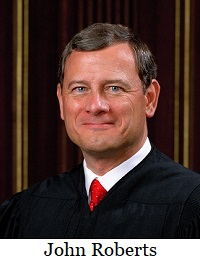
In a single opinion,
Students for Fair Admissions v. Harvard College and University of North Carolina, the Chief Justice Roberts, writing for the majority said, "Admission to each school can depend on a student’s grades, recommendation letters, or extracurricular involvement. It can also depend on their race. The question presented is whether the admissions systems used by Harvard College and UNC are lawful under the Equal Protection Clause of the Fourteenth Amendment."
In his
majority opinion, Chief Justice Roberts concludes, "the student must be treated based on his or her experiences as an individual—not on the basis of race. Many universities have for too long done just the opposite. And in doing so, they have concluded,
wrongly, that the touchstone of an individual’s identity is not challenges bested, skills built, or lessons learned but the color of their
skin. Our constitutional history does not tolerate that choice.
Segregated Admissions has been under consideration by the US Supreme Court since 1954 when it first considered that issue in
Regents of University of California v. Bakke, which involved a set-aside admissions program used by the University of California, Davis, medical school. Each year, the school held 16 of its 100 seats open for members of certain minority groups, who were reviewed on a special admissions track separate from those in the main admissions pool.
A D V E R T I S E M E N T

A D V E R T I S E M E N T
In a statement sent out by University of Oregon Interim President Jamie Moffitt and Interim Provost and Executive Vice President Janet Woodruff-Borden, the decision was lamented.
"We are disappointed in the decision made today by the United States Supreme Court related to race-conscious decisions in admission. The University of Oregon shares the concerns of our university peers across the nation that this ruling will impact the ability of underrepresented students to access the benefits of higher education.
"However, the decision will not change our unwavering commitment to admitting students based on a comprehensive review of their capacity for excellence, a strategy that has vigorously supported our values of diversity, equity, inclusion, and belonging. The UO will continue to seek to attract and retain underrepresented and underserved students while providing them with equitable and inclusive access to higher education. This is critical to our mission of inclusive excellence.
"Our current university and academic program admissions processes focus on evaluating the promise of each applicant based on a comprehensive review of their quality of character, achievements within the context of their educational experience, and their unique ability to contribute to the university. That aspect of our admissions process has produced a diverse class of scholars each year, and we do not intend to change our successful strategy of evaluating each applicant based on their individual potential.
A D V E R T I S E M E N T

A D V E R T I S E M E N T
"We are carefully reviewing the decision and will make any necessary changes to our processes to comply with the ruling while ensuring we continue to achieve our mission-driven goals of providing access, opportunity, equity, and inclusion for students."
Former State Representative Mike Nearman (R-Independence) was a member of the House Committee on Higher Education and celebrated the decision. "Where limited opportunities exist, any acceptance of a student for any reason means that some nameless, faceless student has been rejected out the back door. It is unjust to base admissions on something as shallow as skin color."
--Staff Reports| Post Date: 2023-06-29 12:13:54 | Last Update: 2023-06-29 13:35:49 |
Read More Articles










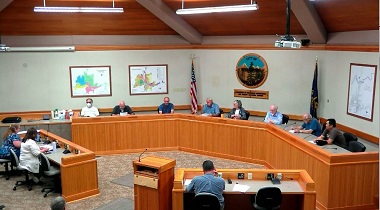





 “It was shocking and heartbreaking watching terrorists systematically destroy the company my family built,†Schumacher said. “Law enforcement failed to intervene effectively, leaving us without the basic protection we deserved,†he said. “The effects were devastating to our family and the families of hundreds of people we employed, many of which were expert craftsman who had proudly worked for the company for decades,†he said.
“It was shocking and heartbreaking watching terrorists systematically destroy the company my family built,†Schumacher said. “Law enforcement failed to intervene effectively, leaving us without the basic protection we deserved,†he said. “The effects were devastating to our family and the families of hundreds of people we employed, many of which were expert craftsman who had proudly worked for the company for decades,†he said.



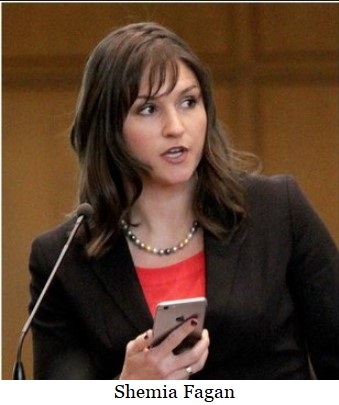


 Judge Beckerman also cited the case Donald J. Trump for President, Inc. v. Boockvar. This case dismissed claims related to the state’s mail-in voting system as “too speculative to be concrete†where the plaintiffs claimed a “fear that absent implementation of the security measures that they seek; guards by drop boxes, signature comparison of mail-in ballots, and poll watchers, there was a risk of voter fraud by other votersâ€.
Judge Beckerman also cited the case Donald J. Trump for President, Inc. v. Boockvar. This case dismissed claims related to the state’s mail-in voting system as “too speculative to be concrete†where the plaintiffs claimed a “fear that absent implementation of the security measures that they seek; guards by drop boxes, signature comparison of mail-in ballots, and poll watchers, there was a risk of voter fraud by other votersâ€.
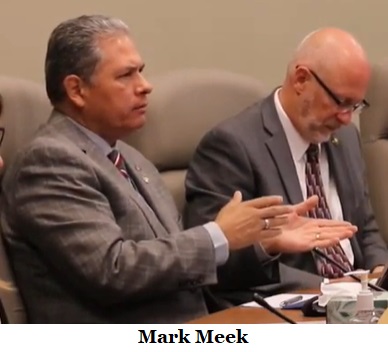



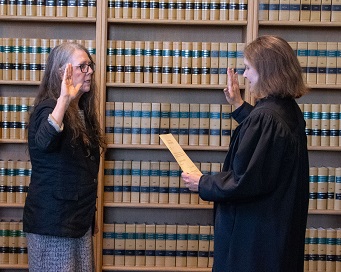

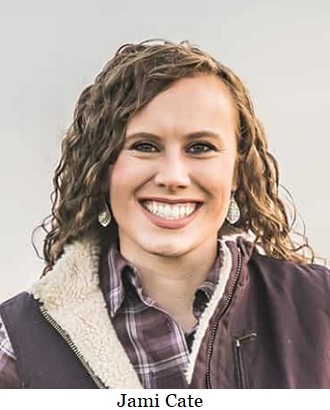

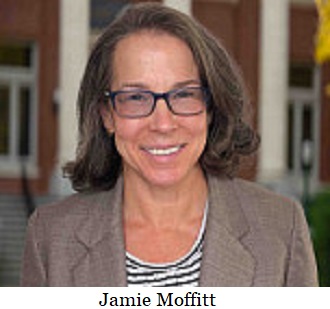
 In a single opinion, Students for Fair Admissions v. Harvard College and University of North Carolina, the Chief Justice Roberts, writing for the majority said, "Admission to each school can depend on a student’s grades, recommendation letters, or extracurricular involvement. It can also depend on their race. The question presented is whether the admissions systems used by Harvard College and UNC are lawful under the Equal Protection Clause of the Fourteenth Amendment."
In a single opinion, Students for Fair Admissions v. Harvard College and University of North Carolina, the Chief Justice Roberts, writing for the majority said, "Admission to each school can depend on a student’s grades, recommendation letters, or extracurricular involvement. It can also depend on their race. The question presented is whether the admissions systems used by Harvard College and UNC are lawful under the Equal Protection Clause of the Fourteenth Amendment."

